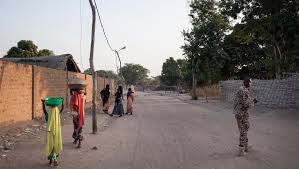In this northeastern battered town of the Central African Republic (CAR), about 1,067 kilometers from the nation’s capital Bangui, income-generating activities have resumed with the help of the FAO and the UN Mission in the Central African Republic.
Birao, which borders Chad, Sudan and South Sudan, is well-known for “looting, burning houses, granaries and plots of land, slaughtering herds and destroying livestock habitats.”
These reprehensible acts have, since September 2019 “significantly exacerbated the vulnerability and livelihoods of the population,” the United Nations Food and Agriculture Organization (FAO) Regional Office for Africa lamented.
Life in the area has been precarious, forcing the people of Birao to flee and desert “their land and agricultural inputs” according to a statement from the UN agency shared with APA on Tuesday.
To enable them to resume “production activities,” the FAO has launched a project entitled “Support to the resilience of the population affected by the Birao crises.”
It is funded by the United Nations Multidimensional Integrated Stabilization Mission in the Central African Republic (MINUSCA) to the tune of $50,000.
This program, which aims to strengthen the resilience of households affected by the crises, improve their food security and restore their livelihoods, has helped “540 households, or 2,700 people, 59 percent of whom are women, for seven months,” the statement said.
Specifically, emergency assistance in small livestock kits (local chickens and goats) was provided to families.
The FAO has also organized an input fair.
On this occasion, vouchers worth between $188 and $554 were distributed “to beneficiaries organized in 54 groups of ten households.”
With this financial assistance, the targeted families purchased at the input fair “local goat or chicken breeding stock, as well as livestock feed.
The assistance from the FAO’s did not stop there.
The groups of beneficiaries in goat breeding received kits of materials for the construction of animal shelters (metal sheets, rafters, iron, cement, spikes and aluminum pax) and those beneficiaries of the local chicken breeding kits received six mangers and six troughs.
The animals provided to the beneficiaries have all been vaccinated and rid of parasites.
In addition, the statement says the implementing partner and 108 technical delegates were trained in good agricultural and livestock practices and in the procedures for organizing an input fair.
The resumption of economic activities in this area has brought together different ethnic groups (Goula, Kara, Rounga and Haoussa) who had broken off all ties due to security problems.
But the sensitization and identification of beneficiary households, their training, and the sale of agricultural inputs by suppliers composed of several ethnic groups have contributed to significantly strengthening social cohesion and inter-community dialogue within the intervention area, FAO said.
ID/fss/as/APA


